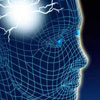The Power Of Belief ~ Part II
 by William Walker Atkinson
by William Walker Atkinson
Following the scientific study of the phenomena of cures of physical illness by means of the power of mental states, and the recognition of the fact that there is a common principle operative under the various guises and forms, there sprang into scientific usage the term “Faith Cures” which was used to designate all instances and forms of cures coming under the general classification of mental healing. Prof. Goddard defines the term as follows: “A term applied to the practice of curing disease by an appeal to the hope, belief, or expectation of the patient, and without the use of drugs or other material means. Formerly it was confined to methods requiring the exercise of religious faith, such as the ‘prayer cure’ and ‘divine healing,’ but has now come to be used in the broader sense, and includes the cures of ‘Mental Science,’ and hypnotism; also a large part of the cures effected by patent medicines and nostrums, as well as many folk-practices and home remedies. By some it is used to include also Christian Science, but the believers in the latter regard it as entirely distinct.”
The term “Suggestion,” used in the same sense as “Faith Cure” in relation to the healing of disease, has also come into popular usage, but inasmuch as Suggestion has a much larger meaning outside of its therapeutic phases, it may be said the best authorities today use the term “Faith Cure” as representing simply one phase of Suggestion.
Prof. Goddard, in his article on “Faith Cure,” in the New International Encyclopaedia (Dodd, Mead & Co., New York), says: “Besides these recognized forms (divine healing, mental science, etc.), faith cure is an important element in cures wrought by patent medicines and nostrums, home remedies and folk practices. The advertisement, testimonial of friend, or family tradition arouses the faith of the sick man, and he comes to believe that he needs only to follow directions to be fully cured. The actual value of faith cure as a therapeutic method has been the subject of much discussion. It can no longer be denied that it has value. From divine healing to patent medicine and Father Kneipp’s water cure, all cure disease. Each appeals to a particular type of mind, but the results are practically the same in all—same diseases cured, same successes, same failures. Many faith-curists claim that all diseases in all persons can be cured by their method; others hold that the principle is of limited application. Of them all, the hypnotists are the only ones who do not make sweeping claims.”
After stating “the tendency to exaggeration and the infrequency of impartial judgment” in connection with many instances of claimed cures, the above mentioned authority proceeds as follows: “The actual cures, however, are sufficiently numerous and sufficiently striking to need an explanation. These different forms agree in only one point—viz., the mental state of the patient is one of hope and expectation. Can states of mind cause or cure disease? Some familiar occurrences seem to justify an affirmative answer. It is well known that certain glands and secretions are markedly affected by emotions. Fright causes the saliva to cease to flow and the perspiration to start. Sorrow causes the lachrymal glands to secrete tears. Happiness favors digestion, unhappiness retards it. Mosso has demonstrated that the bladder is especially sensitive to emotional states. In general, the pleasant emotions produce an opposite physical effect from the unpleasant ones. There are many glands within the body whose action under emotion we cannot observe; but we may reasonably assume that they also are affected by emotional states. Hence, if unpleasant emotions so act upon the glands as to derange the system and cause disease, the pleasant emotions may reasonably be assumed to tend to restore the normal functions. The various forms of faith cure tend strongly to put the patient in a happy frame of mind—a condition favorable to health. However, there are all degrees of faith and wide differences in the way the system responds to the emotional state. One person is slightly affected by a strong emotion; another is strongly affected by a weak emotion. Hence, there must always be a wide difference in the results of faith-cure methods. The diseases most amenable to faith cure are nervous—including many not recognized as nervous, but having a neural condition as their basis—and functional derangements. Organic diseases are not usually cured, though the symptoms are frequently ameliorated. Chronic diseases due to neuro-muscular habit often yield to hypnotic treatment.”
Prof. R. P. Halleck says: “Were it not for this power of the imagination, the majority of quack nostrums would disappear. In most cases bread pills, properly labeled, with positive assurances of certain cures accompanying them, would answer the purpose far better than these nostrums, or even much better than a great deal of the medicine administered by regular physicians. Warts have been charmed away by medicines which could have had only a mental effect. Dr. Tuke gives many cases of patients cured of rheumatism by rubbing them with a certain substance declared to possess magic power. The material in some cases was metal; in others wood; in still others, wax. He also recites the case of a very intelligent officer who had vainly taken powerful remedies to cure cramp in the stomach. Then ‘he was told that on the next attack he would be put under a medicine which was generally believed to be most effective, but which was rarely used.’ When the cramps came on again, ‘a powder containing four grains of ground biscuit was administered every seven minutes, while the greatest anxiety was expressed (within the hearing of the party) lest too much be given. Half-drachma doses of bismuth had never procured the same relief in less than three hours. For four successive times did the same kind of attack recur, and four times was it met by the same remedy, and with like success.’ A house surgeon in a French hospital experimented with one hundred patients, giving them sugared water. Then, with a great show of fear, he pretended that he had made a mistake and given them an emetic instead of the proper medicine. Dr. Tuke says: ‘The result may easily be anticipated by those who can estimate the influence of the imagination. No fewer than eighty—four-fifths—were unmistakably sick.’
“We have a well authenticated case of a butcher, who, while trying to hang up a heavy piece of meat, slipped and was himself caught by the arm upon the hook. When he was taken to a surgeon, the butcher said he was suffering so much that he could not endure the removal of his coat; the sleeve must be cut off. When this was done, it was found that the hook had passed through his clothing close to the skin, but had not even scratched it. A man sentenced to be bled to death was blindfolded. A harmless incision was then made in his arm and tepid water fixed so as to run down it and drop with considerable noise into a basin. The attendants frequently commented on the flow of blood and the weakening pulse. The criminal’s false idea of what was taking place was as powerful in its effects as the reality, and he soon died…. There is perhaps not a person living who would not at times be benefited by a bread pill, administered by some one in whom great confidence was reposed.”
The same authority also says: “It has been known for a long time that if the attention is directed toward any bodily organ, abnormal sensations may be caused in it, and disease may be developed. The renowned Dr. John Hunter said: ‘I am confident that I can fix my attention to any part, until I have a sensation in that part.’” Dr. Tuke says that these “are words which ought to be inscribed in letters of gold over the entrance of a hospital for the Cure of Disease by Psychopathy.” Hunter’s confident assertion is the more interesting because, drawn from his own experience, it shows that the principle is not confined in its operation to the susceptible and nervous, but operates even on men of the highest mental endowment. We have examples from the literature of the seventeenth century, showing how the expectation of a complaint will produce it. In 1607 an ignorant English physician told a clergyman’s wife that she had sciatica, although there was, in reality, nothing the matter with her sciatic nerve. Her attention was thereby directed to it and a severe attack of sciatica was the result. When a person inexperienced in medicine reads carefully the symptoms of some disease, he is apt to begin an attentive search for those symptoms and to end by fancying he has them. Seasick persons have been relieved of their nausea by being made to bail a leaking boat from the fear that it would sink. All their attention was thereby diverted from themselves. Many can recall how children, and grown persons, too, have forgotten all about their alleged intense thirst, as soon as their attention was diverted. Some persons, after eating something which they fancy is a trifle indigestible, center their attention upon the stomach, expecting symptoms of indigestion, and are often not disappointed. A man who had good reason to fear hydrophobia, determined that he would not have it. The pain in the bitten arm became intense, and he saw that he must have something to divert his attention from the wound and his danger. He therefore went hunting, but found no game. To make amends, he summoned a more inflexible will and exerted at every step ‘a strong mental effort against the disease.’ He kept on hunting until he felt better, and he mastered himself so perfectly that he probably thereby warded off an attack of hydrophobia. Accordingly as we center our attention upon one thing or another, we largely determine our mental happiness and hence our bodily health. One person, in walking through a noble forest, may search only for spiders, and venomous creatures, while another confines his attention to the singing birds in the branches above. One reason why travel is such a cure for diseases of body and mind is because so many new things thereby come in to claim the attention and divert it from its former objects. The following expression from Dr. Tuke should be remembered: ‘Thought strongly directed to any part tends to increase its vascularity, and consequently its sensibility.’”
Dr. C. F. Winbigler says: “The practitioner secures the same effects from a placebo or powdered popcorn as from some drugs by using suggestion with the former. Every successful physician has used this method at one time or another, and sometimes when he was utterly puzzled as to what he should prescribe, he thus secured a marvelous result, and a cure of the patient was effected…. Every believer in Psycho-therapeutics knows that there is a psychical as well as a physical effect from the use of drugs. The psychical value is based on the expectation of their special action, and that which is in the physician’s mind may be subtly and powerfully carried over into the patient’s mind. The physician’s personality, attitude and interest in the patient accomplishes vastly more than the drugs he prescribes or administers. If he is cheerful and hopeful, he gives potency to their action; if he is gloomy, pessimistic and hopeless, he nullifies their effects. The cure of the patient is effected through the subconscious mind, and the attitude and bearings of the physician, attendants, the surroundings and the medicines employed, become powerful suggestions.”
Prof. Elmer Gates says: “The system makes an effort to eliminate the metabolic products of tissue-waste, and it is therefore not surprising that during acute grief tears are copiously excreted; that during sudden fear the bowels and the kidneys are caused to act, that during prolonged fear, the body is covered with a cold perspiration; and, that during anger, the mouth tastes bitter, due largely to the increased elimination of sulpho-cyanates. The perspiration during fear is chemically different, and even smells different from that which exudes during a happy mood…. Now if it can be shown in many ways that the elimination of waste products is retarded by sad and painful emotions; nay, worse than that, these depressing emotions directly augment the amount of these poisons. Conversely, the pleasurable and happy emotions, during the time they are active, inhibit the poisonous effects of the depressing moods, and cause the bodily cells to create and store up vital energy and nutritive tissue products.”
In an issue of “The American Practitioner and News,” is reported a discussion before the Lexington (Ky.) Medical and Surgical Society, in which a member, Dr. Guest, related the following experience: “I have a brother-in-law who suffers every summer with hay fever. He has a relative who believes in Christian Science. She told him that she felt positive that she could direct him to a woman, a Christian Scientist, who would cure him. He at first objected, because he hated to go to a woman physician. He arranged, however, to communicate with her daily by letter. When his hay fever broke out he suffered with it all that day and night, and the next morning wrote her a note telling her to put him on treatment immediately. When he returned that night he was improved and slept better. He wrote a second note the next morning and was much encouraged. The third day he repeated his letter writing and stated that the symptoms had almost ceased. And he was making fun of me about being cured by Christian Science when regular physicians could do nothing for him. The night of the third day, when he came home to supper, he found a note from the Christian Scientist, stating that she has been in the country and would put him under treatment the next day. Realizing that all his treatment had been only in his imagination, the symptoms reappeared with the same intensity as before.”
Dr. A. J. Parks of New York, says: “The absolute and complete control that the sympathetic nervous system exercises over the physical organization is so perfectly clear and well known to every observer that the recital of the phenomena in the vast and countless series of manifestations is unnecessary. We are all aware of the fact that digestion is promptly arrested upon the receipt of bad news. The appetite at once disappears. It ceases, and the whole system feels the effect of the depressing impulse—the mental and spiritual wave which lowers the vital thermometer. Fear not only suspends the digestive function but arrests the formation of the secretions upon which digestion depends. A sudden fright frequently paralyzes the heart beyond recovery, whereas a pleasant and pleasing message soothes and gently excites the whole granular system, increases the secretions, aids digestion and sends a thrill of joy to the sensorium, which diffuses the glad tidings to every nerve fibril in the complex organization.”
Dr. T. A. Borton, in an address before the Indiana State Medical Society, said: “The subject which I desire to present to you today has to do with the influence of the mind over the functions of the body. Its silent, unobserved force results in producing pathological conditions, and those, by reflex action, excite morbid sensibilities of the mind and thus derange the nerve centers, resulting in a changed condition or over-excitability of the nerve energies, which becomes a secondary diseased condition in the form of different types of neurasthenia. I have been interested in this subject for many years, and in my practice have had extended opportunities for making observations as to the potency of the mental and suggestive pathology bearing on this subject. I would especially refer to the healing of the body through these mental forces, changing healthy, normal conditions into unhealthy or diseased conditions and vice versa. These changes are not miraculous, but proceed from natural causes in the operation of the mind, as a therapeutic agency, operating through the functions of the body, sometimes as a tonic or stimulant, warding off diseases under the most exposed conditions, defending and holding the system in a state of health, while those void of these mental assurances become victims to the ravages of disease through contagion or infection. This protective mental force of the mind has been demonstrated many times in hospitals and other places where contagious diseases were prevailing. The mental force possesses a protective power when rightly exercised beyond what is usually conceded, not only in the way of defense; but also in correcting disease when in existence. I believe these to be much greater than has been generally admitted or understood…. We all know how difficult it is to get good results from medication in which our patients have no confidence, and it is an established fact that we get better results from drugs which are given with the patient’s knowledge of their intended effect. I have often produced desired results from means entirely inert, stating the desired and expected effect of its administration. I have frequently quieted the severest pain by injecting pure water into the arm of the patient.”
Dr. G. R. Patton, in an address before the Wabasha County (Minn.) Medical Society, said: “As Bacon said, ‘Faith, confidence, belief and hope are the working forces that make the cure—that work the miracle.’ The mind as a dynamic force exerted over the functions of the body has been, doubtless, operatively manifest from the cradle of our existence. By the phrase, ‘the mind as a dynamic force,’ I refer to the various forms of suggestion as well as to various affective faculties of the mind, or those states caused by the sympathetic action of the brain, such as faith, confidence, belief, imagination, emotions, hope and the like. Any or all of them may become active over the bodily functions…. As instance of the mental impression acting upon observable functions revealed through the capillary circulation as revealed to the sight, I will mention blushing or pallor of the face, depending upon the theme presented to the thought; the mouth watering on the sight or thought of tempting food; the flow of tears from words or thoughts that excite grief; nausea or vomiting from a sickening spectacle; sexual excitement from obscene thought or lascivious sights. Instances might be multiplied. And is it not a fair inference, indeed, that through the vasomoter nerves, the internal viscera may be subject to like effects through mental impressions, and that thus acute as well as chronic congestive ailments thereof may be favorably influenced or even cured thereby?… It is my conviction that recognition of the power and usefulness of mental dynamics, including all forms of suggestion over physiological and pathological processes in combating diseases, is unquestionably the most impressive advance in modern medicine. Mental influence alone may diminish or increase the activities of the physiological processes to the extent of removing the pathological effects of disease…. A celebrated medical teacher, after an exhaustive dissertation over a case was leaving the bedside without prescribing any treatment when the house physician asked what should be given the patient. ‘Oh,’ said the professor, ‘a hopeful prognosis and anything else you please.’ To this he added, ‘the doleful doctor will be a failure, while the hopeful one will prove a winner from start to finish.’ It is reasonably assured that ultimately the physician will become not so much the man behind the pill as the judicious advisor, the wise counselor, gently leading the sick ‘into green pastures, beside still waters,’ through paths that lead onward to recovery, assisting nature at times, if needs be, with a big bread pill.”
Dr. Herbert A. Parkyn, the well-known authority on suggestive therapeutics, says: “Certain results will follow certain thoughts, and in every instance that it is possible to get the patient to think the thoughts we desire, we secure the results we desire. It is the work of the suggestionist to place these thoughts in the mind of the patient so that he is bound to think them, and this can be done to some degree, if not perfectly, in every case. It is well to have faith, but faith is not absolutely necessary at the outset. It is time enough for the patient to have faith in the treatment when he can perceive the benefit he is receiving. Understanding the mental and physical changes which follow a certain thought, the suggestionist is able to bring about those mental or physical changes, by using direct suggestion in such a way that his patient is bound to think the thoughts which will produce the results. A man may not have faith in the statement that the thought of lemon juice will stimulate the flow of saliva, but if he will imagine for a moment that he is squeezing the juice of a lemon into his mouth the saliva will immediately flow more freely than usual, regardless of his faith. Similarly, many, if not all of the organs of the body, can be affected by impulses following certain lines of thought, and these impulses will follow the thought and stimulate the organs regardless of faith. It is simply necessary to get a patient to think the proper thoughts, and it is in the thought directing that the work of the suggestionist lies.”
Excerpt from Mind And Body
See Part I here. Part III coming soon.
Posted in Health, Other Topicswith 2 comments.






Thanks for everything you are doing.
Hi just want to say how much I enjoy this web site. Thanks so much